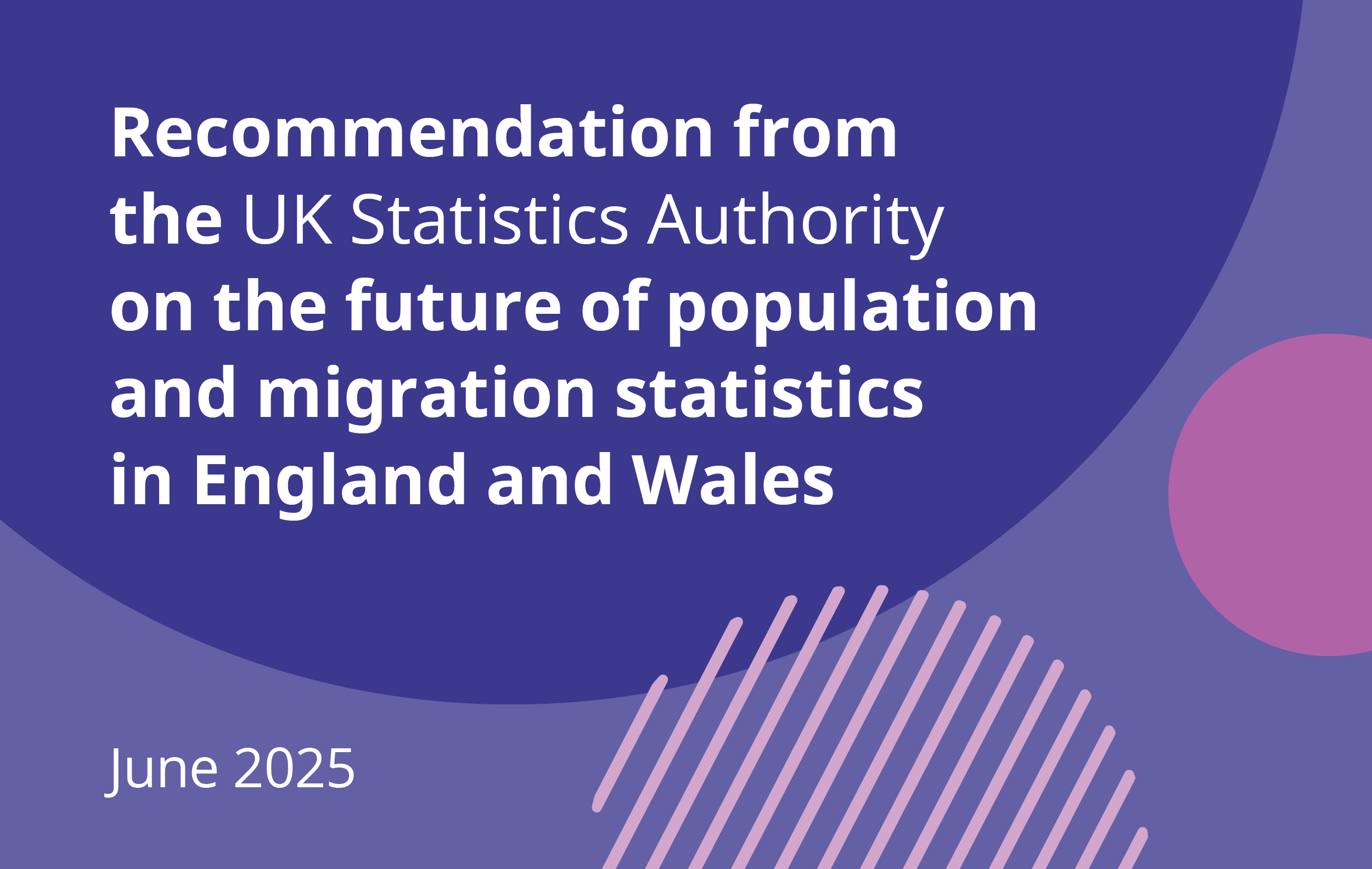2023 consultation and user engagement
On 29 June 2023, the Office for National Statistics (ONS) launched a consultation on the future of population and migration statistics in England and Wales. This sought views on how the ONS’s proposals to create a sustainable, admin-based system for producing essential, up-to-date statistics about the population would meet user needs. A total of 706 responses were received. The ONS has published a report on the consultation’s findings.
Responses came from a variety of organisations and individuals from the public and private sectors and beyond. Feedback was also collected through engagement events with stakeholders during the consultation period.
Respondents showed widespread support for the continued development of a system that increasingly uses administrative data, delivering the benefits of more timely and frequent data. Alongside this, there was a strong appetite for further assurances on some of the technical details of an administrative system and its delivery. Users required a greater understanding of the proposed statistical design, particularly for producing individual-level data. There were consistent views across all broad user groups, including government, researchers, third sector and individuals, that:
- more frequent and timely population and migration estimates would provide improved supporting evidence for service provision and delivery
- better monitoring of internal migration through the proposed alternative definitions would enable users to understand changing trends at specified times
- detailed characteristics data are essential for many users and organisations to function effectively and fully understand the needs of specific populations
- data at granular geographic areas are needed to understand differences between communities, particularly in relation to inequality or deprivation
- certainty is needed in the sustainability of underlying administrative sources, including the full coverage of characteristics
- certainty is needed in the supply, quality, harmonisation and coherence of data across sources and different parts of the UK
- collection of data at an individual level is essential to enable bespoke aggregation into outputs to meet a wide range of needs
- once sufficient time has passed, population data are valued by social historians and for genealogical research.
Whilst it is clear many users welcome the continued development of population and migration statistics based increasingly on administrative data, and the ONS’s focus groups with members of the public have indicated acceptance of this approach, it is apparent from responses that the ONS’s evidence to date, including the consultation document, that the time is not yet ripe to forego a whole-population questionnaire-based census. This theme also came through in contributions to the UK Statistics Assembly 2025, as described in the independent report about the event. The Authority has listened to this feedback, and the need to demonstrate this capability has shaped the priorities and timeline of this recommendation.
The National Statistician’s Inclusive Data Advisory Committee provided a formal letter to the National Statistician in response to the consultation, which the ONS has published. The feedback centred on the need for population data to be inclusive, in which people of all protected characteristics can be counted and visible, thereby ensuring the accuracy of administrative data and ability to produce data on at-risk populations.
Furthermore, the committee emphasised the importance of verifying the accuracy of administrative data, particularly in the potential absence of a traditional, questionnaire-based census of the whole population in 2031. The committee noted that the proposed plan to validate the data was in its early stages and that significant progress in these methods would be required to produce accurate information on at-risk populations after 2031.
Back to top
